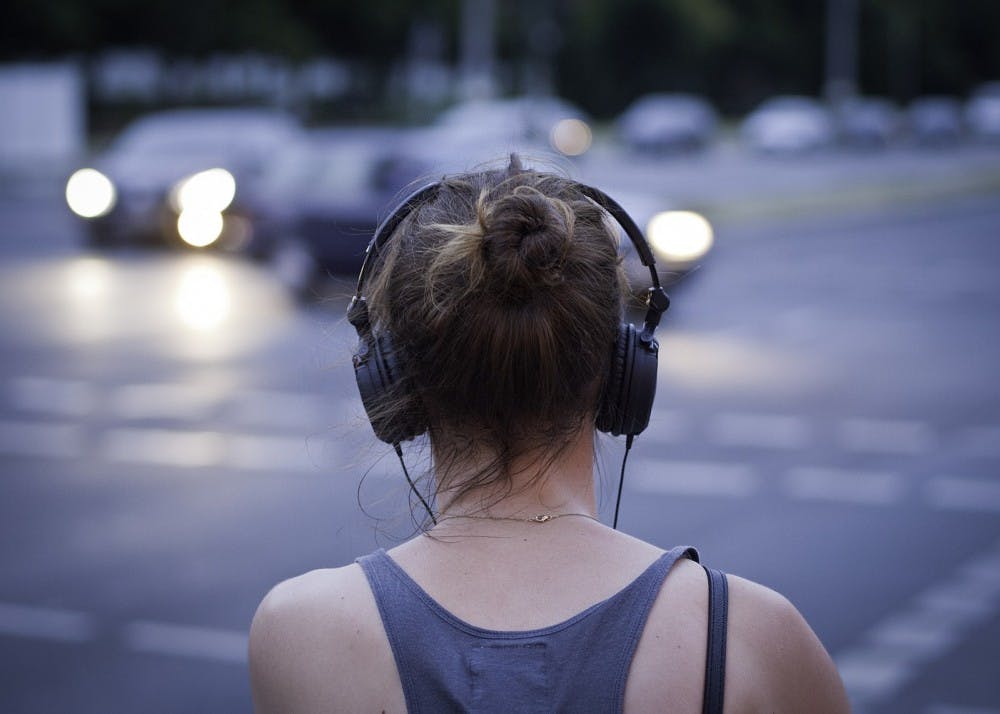A couple of weeks ago, I received a startling email in the Forbes listserv from a student claiming that he had ruined his eyes by overusing electronic screens. Maybe you remember seeing the email, too, with its foreboding title: “Don’t Be Me. Graduate on Time!” Later that day, I brought the email up with some friends, and we reflected on its urgency, half shrugging it off but half wondering whether such a thing could really happen to us — would we wake up one morning, suddenly unable to look at a phone or computer, like the email’s author said happened to him?
Reading that email reminded me of the even deeper damage that electronic screens can cause, however. It took me back to a moment this past summer on the DC metro. The car was packed with people, bodies wall to wall … and yet the air was completely silent. No conversations, friendly smiles, or spontaneous laughter. Almost everyone seemed to be entirely blind to the world because of the earbuds occupying their heads and the phones occupying their eyes. When the car jolted along its route and I bumped into someone, I said, “excuse me,” hesitant to break the silence (as if it were taboo), but that person didn’t even acknowledge my presence — they simply didn’t hear me because of their headphones.
Since arriving at Princeton, I have witnessed similar isolation through technology when walking around campus. The sky is a gorgeously crystal-clear blue by day, a spread of starry wonder by night, and yet many people I pass have their heads looking down at their phones with earbuds in. I, too, am certainly not immune to the guilty allure of the electronic screen, filled with its access to something “bigger” or “better.” Yet I think that, for at least part of the time, walking across campus without a device or earbuds can be healthier for us.
Opinion columnist Gabe Lipkowitz ’19 recently wrote a piece on the divide between digital devices and physical space on Princeton’s campus, asserting a similar claim to my own that overuse of electronics can be detrimental to students. While he has claimed that the digital world can inhibit the interpersonal interactions, which can happen during cross-campus walks (e.g., bumping into our friends or professors), I find that the damage from digitality goes even further by directly separating us from the natural world.
When I walk with headphones on, for instance, not only am I less likely to stop and chat with friends, but I am also shutting out the scintillating sounds of the outdoors, even if those are just leaf blowers in the fall or lawnmowers in the spring.
Taking the time to maintain our relationships with nature can be incredibly beneficial for our mental health; studies have shown that exposure to the outdoors boosts positive emotions and alleviates symptoms of anxiety and depression. On Princeton’s campus, mental health has gotten an enormous amount of attention lately, from Rachel Yee’s prioritization of the issue during her time as Undergraduate Student Government president and last month’s Mental Health Week hosted by the Princeton Mental Health Initiative to an increasing number of posts on Tiger Confessions discussing mental health.
Yet with all the work I get from my classes, I find it difficult to set aside time during my day to intentionally focus on my mental health. By multitasking (a necessity at Princeton) and using my walks around campus to engage with nature and practice mindfulness, I’ve found it easier to remind myself to breathe and stay calm. There is something incredibly satisfying about pausing in Prospect Gardens, even for a few seconds, and absorbing the piney scents of the trees while being fully present.
Yes, for many of us, nature on campus may seem insignificant, amounting to nothing more than squirrels and deer. Yet while the vistas on my way from Forbes to the Friend Center aren’t like those found in Yosemite or the Grand Canyon, there is still splendor in each part of the world, even in New Jersey and especially at a college campus consistently labeled as one of the most beautiful in the nation.
I’m not asserting that my peers don’t recognize this beauty, either. I do believe, though, that we all can take a bit more time each day to try walking somewhere without a phone screen out or headphones on in order to build up our relationship with the outdoors. If we all succumb to the temptation of technology every waking hour, will we continue to have friendly conversations, or will the world around us be filled with the silence of the DC metro as we continue about our day with music piped in through artificial mini-speakers in our ears? Sometimes the music that the world creates for us holds much more value and meaning than a recording, and all we must do is listen.
Claire Wayner is a first-year from Baltimore, MD. She can be reached at cwayner@princeton.edu.










